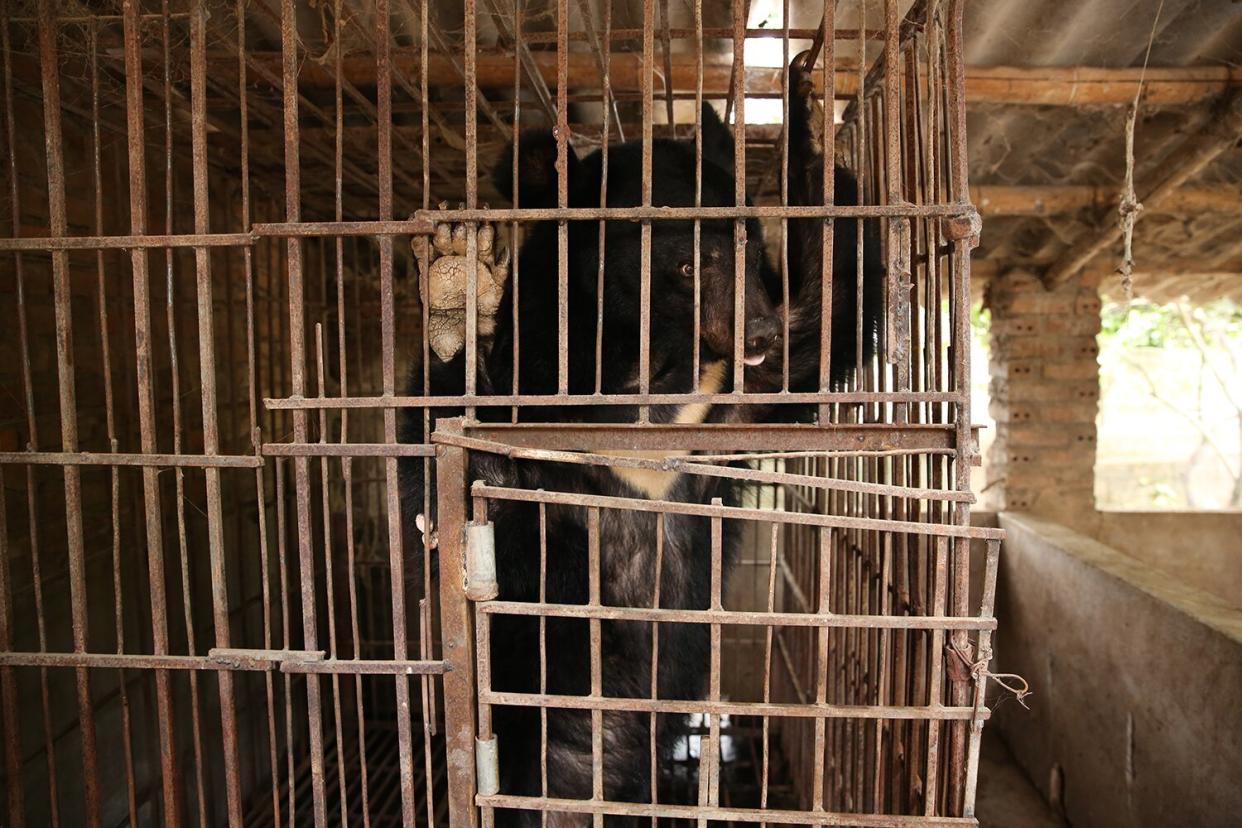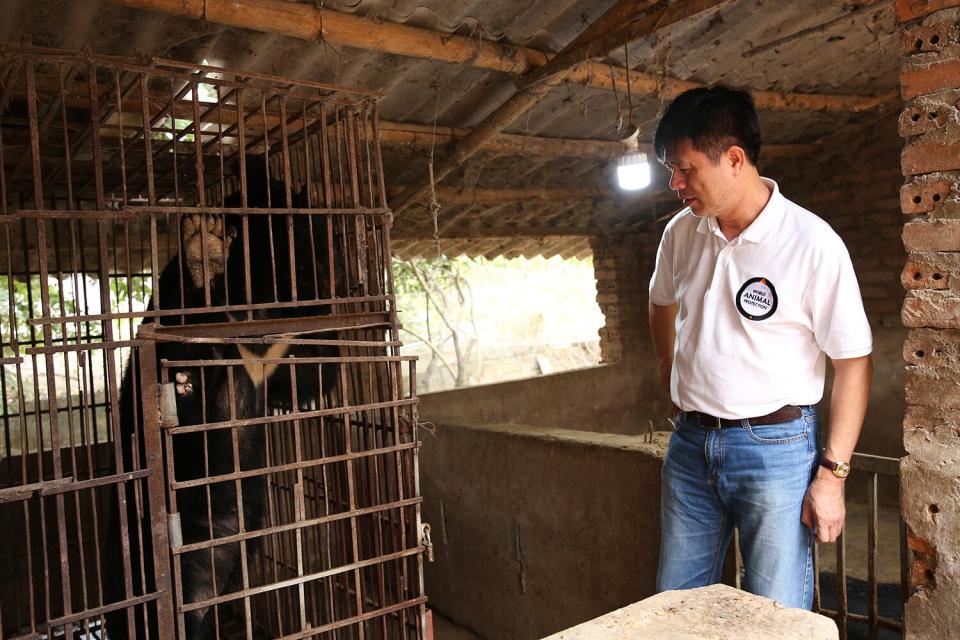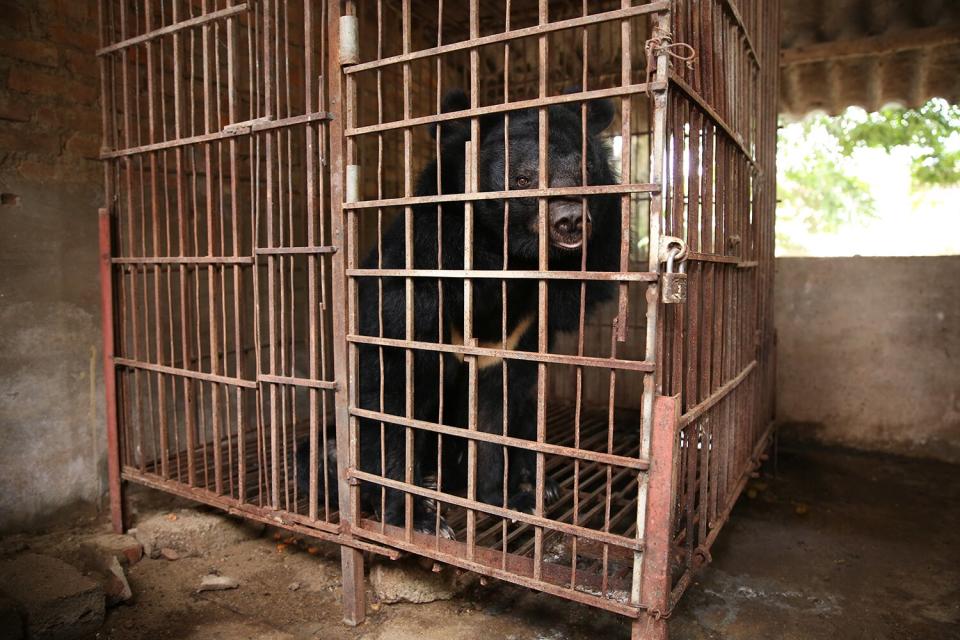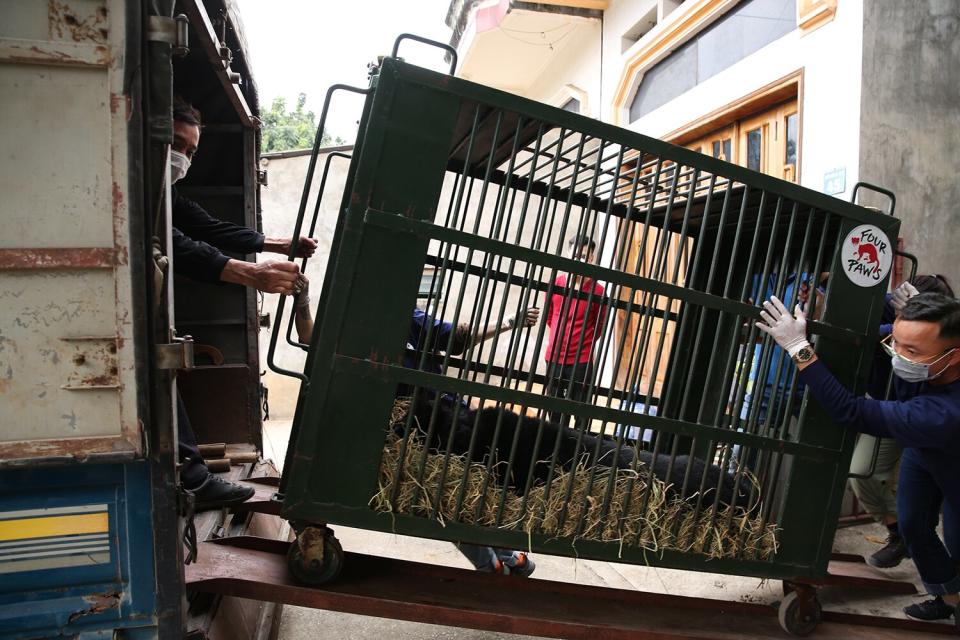Bear Kept in Narrow Cage for 20 Years Moves to Spacious Sanctuary to 'Find Her Bear Friends'

World Animal Protection/Nguyen Van Tuyen
Tu Do the bear's move from a farm in Vietnam to a sanctuary marks an important milestone for animal rescuers.
According to World Animal Protection, the animal rights organization has been working for years to end bear bile farming — a practice where bears are kept caged to extract their bile for use in traditional medicines.
In 2005, Vietnam took a step towards ending the practice for good, outlawing bear bile farming in the country. As part of the ban, bear bile farmers could keep their captive bears as pets. This left an unfortunate loophole that allowed illegal bear bile farming to arise.
For the past decade, World Animal Protection has worked with Education for Nature Vietnam, and other local nonprofits, to halt illegal bear bile trade in the country, and has halved the number of bears trapped in bear bile facilities in Vietnam.
Additionally, for over 15 years, World Animal Protection and Education for Nature Vietnam have helped the Vietnam government register all bears living on farms across the country and monitor the animals with inspections. This ensures that no new bears enter captivity for the bile industry. During these inspections, animal welfare representatives also encourage farmers to surrender their bears to sanctuaries.

World Animal Protection/Nguyen Van Tuyen
All of this hard work culminated into an amazing moment this weekend when a farmer in the Son La province of Vietnam agreed to surrender his bear, Tu Do, to Four Paws' Ninh Binh sanctuary, after keeping the animal captive for over 20 years. Tu Do's move to the rescue center means that the no registered bile farming bears remain captive in Vietnam's Son La province.
"Though bear bile farming is illegal in Vietnam, hundreds of bears still suffer in captivity in the country for their bile. Tu Do, a bear, was living in a tiny cage on a farm. She likely had her bile extracted at some point, an extremely painful process where bile is extracted from the gallbladders of living bears," Liz Cabrera Holtz, a wildlife campaign manager with World Animal Protection, shared in a statement obtained by PEOPLE.
Tu Do's move was made possible by Phuong Le Duy, the World Animal Protection International Vietnam Consultant responsible for working with the farmer who voluntarily surrendered the bear.
RELATED: Rescue of 101 Bears from Abusive Bile Farm Industry Inspires Short Film Moon Bear Homecoming
"In every monitoring trip, I always encourage this farmer that he should surrender his bear," Phuong Le Duy said of his routine visits to the farm to check on Tu Do.

World Animal Protection/Nguyen Van Tuyen
"In the last monitoring trip, I told the owner again about what we can do for his bear. How his bear can live the rest of her life in a sanctuary. He listened, seemed to think a lot, but said nothing. After only a few days, he called the local ranger and said he wants the bear to come to a sanctuary," he added about how the bear's move came to be.
The consultant added that moving to the sanctuary would mean significant, positive changes for Tu Do, who was "kept in a narrow cage" on her former farm, making movement difficult and offering little access to sunlight.
Instead of being kept cooped up and given a diet of "pig and dog food," Tu Do will receive dedicated veterinary care and have access to acres of nature that closely resembles her natural habitat.

World Animal Protection/Nguyen Van Tuyen
"I hope the bear soon adapts to her new home, and she will like it because she will find her bear friends in that sanctuary," Phuong Le Duy shared, adding that he is "very happy" for Tu Do.
Barbara van Genne, who is responsible for wild animal rescue and advocacy at Four Paws, said in a statement that Tu Do is now safely at Four Paws' sanctuary and is settling in.
"The rescue went well, and Tu Do arrived safely at our bear sanctuary Ninh Binh. She was calm, friendly, and curious. The health check revealed she has gallstones, liver, and dental disease, which our expert team will now treat accordingly as her rehabilitation to a better life begins. Tu Do joins the 39 current residents of our sanctuary. If she shows interest in potential companions, we will try socializing her with them in the future. Tu Do will now live the life she deserves," van Genne added.

